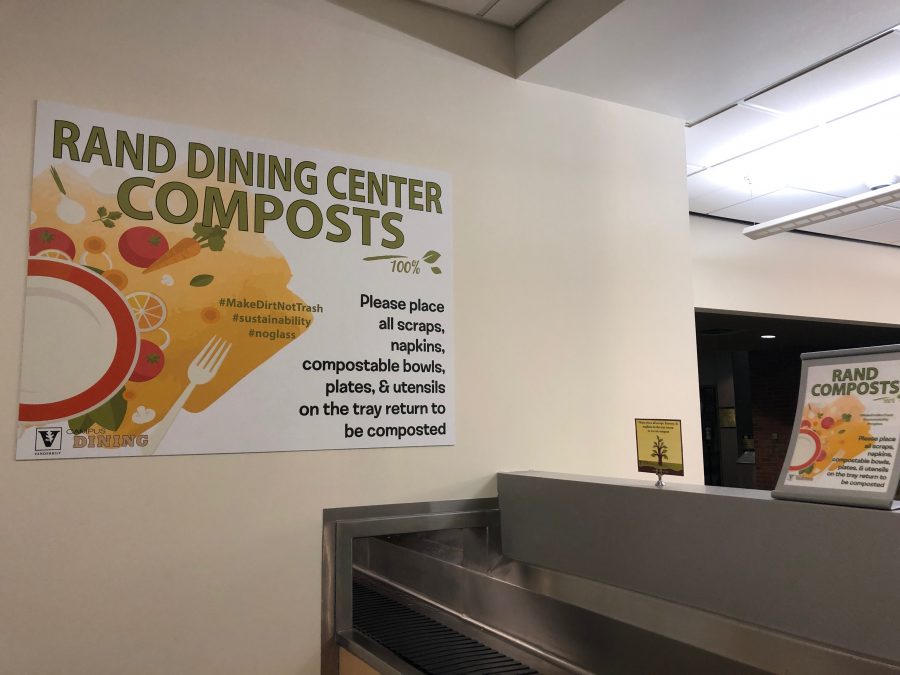Further developing the university’s compost initiative, Campus Dining will begin tracking the progress of the program using new technologies installed later this year.
In October 2017, Vanderbilt Campus Dining started a pilot compost program at the Commons dining center in an effort to reduce the the amount of food waste. Starting in Fall 2018, composting was expanded to all dining locations, advancing Dining’s goal of reducing waste throughout all of its operations.
According to David Ter Kuile, executive director of campus dining, composting has been a part of the kitchens on campus over the past year. The university decided to expand the initiative after the company that the university partners with, the Compost Company, determined they could handle a higher amount of composting.
This initiative involves the collection of food wastes from both kitchens and dining areas, promoted by the removal of trash cans in Rand and Commons. Furthermore, dining has replaced items such as flatware, coffee cups and to-go boxes with compostable counterparts.
“By composting food waste, and our compostable napkins, cups and to-go containers we are saving over 30,000 pounds of waste per month from entering the landfill. This waste is converted to useable compost for grounds at Vanderbilt and beyond,” said Ter Kuile.
To start tracking the impacts of the program, Campus Dining will be partnering with Leanpath in order to install equipment that can monitor waste levels.
With this partnership, three different types of monitoring equipment will be installed, according to Chef Aaron Dilts: the Leanpath 360, Leanpath Zap, and Leanpath 360FS.
In the kitchens, waste will be measured using the Leanpath 360, a waster tracking terminal that includes a built-in scale, camera, and touchscreen user interface. This will help to highlight waste reasons and give managers opportunities to train the staff to resolve these problems.
In smaller operations, the Leanpath Zap, a monitoring software installed on a tablet will be used next to a scale to keep track of quantities.
For post-consumer wastes, the Leanpath 360FS, a floor scale smart meter, will be utilized. This device can record post-consumer food waste automatically, allowing for a seamless integration into the rest of the system.
“Food types, waste sources, loss reasons, and other data can be tracked. This data will feed to digital screens throughout the serving area to let customers know how much post-consumer food is being wasted,” said Dilts.
One of the major problems with the compositing initiative is that many students are not aware that it is taking place, and if they do, they may not know how it works, third-year Frances Burton said. In dining halls, students have to take the compostable materials to the conveyor belt tray return in order for them to be composted, which may not be obvious or convenient in large dining halls like Rand.
Second-year Del Daylami agrees. The system is inefficient currently and needs to be improved if it wants to make a large impact, Daylami said.
In short, Dining hopes that increasing available information about the composting initiative’s success will encourage cooperation and participation.
“All post-consumer waste we collect in Rand, Commons, Bronson, and Kissam, will be measured and the amount of waste collected will be communicated to students via digital screens in those operations,” said Ter Kuile. “By sharing the information to the students we hope to create awareness around food waste and work together to reduce food waste and our overall carbon footprint.”

